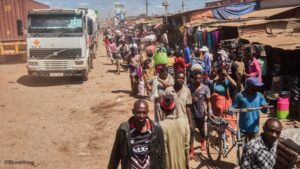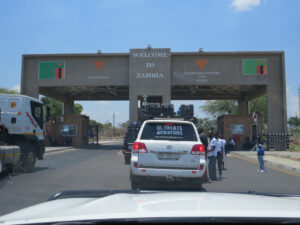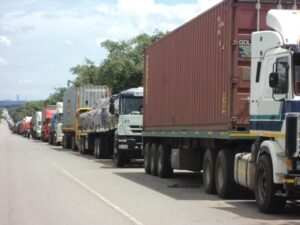Zambia Backs Free Border, Plans a Tighter Control on Immigration
New survey findings reveal a nuanced public mood in Zambia toward migration: citizens strongly support the idea of free movement within Southern Africa, yet many also want fewer foreign workers and refugees entering their own borders. The picture is one of a country balancing regional solidarity with domestic economic pressures; and negotiating its own aspirations to seek opportunities abroad.
According to a recent survey, 62% of Zambians believe people in the region should be able to move freely to trade or work across borders. This vision aligns with Zambia’s long-standing role as a regional crossroads and its official policies under the National Migration Policy, which emphasizes economic growth, social cohesion, and protection for those fleeing conflict.


But this broad support for mobility coexists with a more cautious national sentiment. About one-third of citizens (35%) think government should strictly manage cross-border flows of people and goods. In practice, more than half (57%) report that crossing borders is already difficult or very difficult, underscoring frustrations with bureaucratic barriers and uneven regional harmonization.
Despite their openness to regional movement, fewer than half of Zambians (45%) believe immigrants have a positive economic impact on the country. This tension reflects everyday realities: while migrants contribute through business creation, skills transfer and tax revenues, many citizens worry about job competition and pressure on public services, which are concerns amplified during periods of economic hardship.


Socially, Zambians remain welcoming in principle. Seven in 10 citizens (71%) say they would like or wouldn’t mind having foreign workers as neighbours, and more than half say the same about refugees. Yet when it comes to policy, over three-fourths want the government to reduce or even halt the inflow of foreign job seekers (57% favour reductions; 23% support a complete stop). A similar majority would prefer fewer refugees entering the country.
This contrast between personal tolerance and political caution speaks to wider regional debates: how can countries remain open and humane while still meeting citizens’ expectations for economic security?
Strikingly, the desire for movement isn’t only directed inward. About one in four citizens (27%) have considered leaving Zambia, mostly for economic reasons. Those most likely to contemplate migration are people with post-secondary education (57%), urban dwellers (41%), full-time workers (37%), and the youth (34%).

Their motivations are clear: better job opportunities (50%), and escape from economic hardship (25%). Contrary to assumptions that migration desires overwhelmingly point to the West, four in 10 potential emigrants (39%) prefer South Africa or another African country, while North America remains the top single destination at 24%.
This outward-looking impulse highlights an important irony: even as many Zambians call for reduced immigration at home, they see migration as a pathway to personal and professional advancement for themselves.
Zambia’s geographic position and historical openness have made it an important hub in Southern Africa’s migration system. With more than 170,000 international migrants and over 44,200 refugees and asylum seekers hosted in the country, Zambia continues to play a humanitarian and economic role in the region.

The government’s policy framework aims to strike a balance, encouraging development through migration while safeguarding national security and social harmony. But findings show that public opinion adds another layer; Zambians value openness, yet they also want government to manage migration in ways that respond directly to economic anxieties.
In a region where movement has long shaped livelihoods, identities and political relations, Zambia’s views reflect a broader continental struggle of how to remain connected to neighbours, while protecting the interests of her citizens at home.






